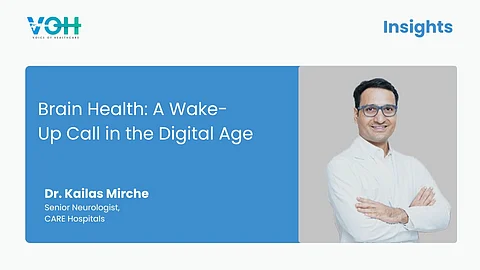Brain Health: A Wake-Up Call in the Digital Age
Hyderabad, July 21, 2025: The brain is the most vital and complex organ in the human body—controlling our thoughts, movements, memories, and emotions. Yet, despite its significance, brain health often goes unnoticed until a serious issue arises. On the occasion of World Brain Day, observed annually on July 22, CARE Hospitals urges the public to be vigilant about early signs of neurological disorders and prioritize regular brain health check-ups.
This year’s theme, “Brain Health and Prevention”, aims to emphasize the importance of early detection, timely treatment, and lifestyle choices that support long-term neurological wellness. Conditions such as stroke, epilepsy, dementia, multiple sclerosis, and brain tumors are increasingly affecting younger and older populations alike due to rising stress, sedentary lifestyles, and lack of awareness.
“People often think of brain diseases only in terms of stroke or tumors. But in today’s world, the more silent killers are stress, burnout, and digital overload, especially among working professionals. Symptoms like lack of focus, irritability, sleep disorders, and forgetfulness are commonly ignored. But these are red flags, brain health is not optional, it’s essential,” said Dr. Kailas Mirche, Senior Neurologist, CARE Hospitals, Hitec-city, Hyderabad.
Mental health challenges in corporate settings are escalating. Overexposure to screens, lack of rest, and constant mental load are rewiring brain functions negatively.“We are now seeing neurological issues in people as young as 30—linked purely to lifestyle and stress. A healthy brain isn’t just about avoiding diseases. It’s about thriving mentally, emotionally, and cognitively in your day-to-day life.” added Dr. Kailas.
Neurologists agree that high-functioning individuals across various fields tend to share a set of common brain-boosting habits. These include getting 7 to 8 hours of quality sleep each night, maintaining a balanced diet rich in B-vitamins, omega-3 fatty acids, and antioxidants, practicing regular meditation or mindfulness to manage stress, and following strong digital hygiene, such as setting clear boundaries for screen time and incorporating regular digital downtime.
“Wearables, AI-powered cognitive tests, and brain-training apps are revolutionizing neuro-care. But excessive exposure to screens, multitasking, and social media addiction are hurting concentration and mental stability. Tech is a tool, not a substitute for human rest, connection, or thinking,” emphasized Dr. Kailas.
Parents and educators must pay special attention to children’s screen time. The early years of brain development are highly sensitive, and excess screen exposure can delay emotional regulation, attention span, and communication skills.
“Brain-friendly foods like walnuts, fatty fish, berries, and green leafy vegetables are more important than ever. Good nutrition is like high-octane fuel for your brain, it powers memory, mood, and learning,” Dr. Kailas advised.
CARE Hospitals continues to lead from the front in neurosciences with advanced diagnostics, stroke-ready emergency teams, epilepsy monitoring units, neurorehabilitation, and expert-led surgeries.
This World Brain Day, CARE Hospitals encourages everyone to start early, think clearly, and protect their most important organ, the brain.

